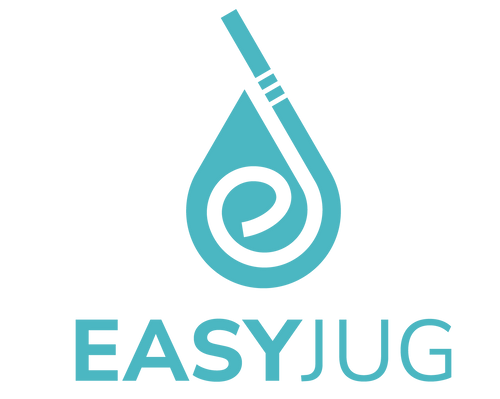Amidst the whirlwind of new motherhood, dealing with postpartum constipation while breastfeeding can be an unexpected challenge. Whether you've experienced a vaginal birth or a cesarean section, your body has undergone significant changes, and prioritizing your well-being is crucial. Let's delve into the causes of postpartum constipation while breastfeeding and explore strategies to navigate this common issue with confidence
Understanding the Causes
Let's delve into what causes postpartum constipation. Hormonal changes, coupled with the physical toll of childbirth, can wreak havoc on your digestive system.
One key player in this hormonal orchestra is progesterone. Throughout pregnancy, progesterone levels surge, helping to maintain the uterine lining and support a healthy pregnancy. However, progesterone also has a relaxing effect on smooth muscles throughout the body, including the muscles of the digestive tract. This relaxation can slow down the movement of food and waste through the intestines, contributing to constipation.
Additionally, the hormone relaxin, which helps to loosen ligaments in preparation for childbirth, can also affect gastrointestinal motility. While relaxin primarily targets the pelvic ligaments, its effects can extend to the surrounding muscles and tissues, potentially impacting bowel function.
Furthermore, the sudden drop in hormone levels after childbirth, particularly estrogen and progesterone, can further disrupt the delicate balance of the digestive system. This hormonal fluctuation, coupled with the physical strain of childbirth and the demands of breastfeeding, can create the perfect storm for postpartum constipation.
Add to that the effects of pain medications, lack of physical activity, and perhaps a shift in your dietary habits, and you've got a recipe for sluggish bowels.
It's also worth noting that the method of delivery, whether vaginal birth or cesarean delivery, can influence bowel function postpartum. Women who undergo cesarean delivery may experience slower recovery times and increased discomfort, which can affect their ability to move and stimulate bowel movements effectively.

How Breastfeeding Can Impact Postpartum Constipation
Did you know that breastfeeding itself can contribute to constipation? While breast milk is undoubtedly the best nourishment for your little one, it can lead to firmer stools for you.
One of the primary reasons breastfeeding may contribute to constipation is the composition of breast milk itself. Breastmilk is 80-90% water. Breastfeeding moms need to drink about 4 liters of water a day. If you are breastfeeding and not drinking enough water, your body will take fluid from places like your colon to produce breastmilk.
When the body lacks adequate fluids, the colon absorbs more water from the waste material passing through it, resulting in dry and hard stools. This makes it difficult for the stool to move smoothly through the digestive tract, leading to constipation.
During childbirth and breastfeeding, the body loses fluids through sweat, urine, and breast milk production. If these fluids are not adequately replenished, dehydration can occur, exacerbating the risk of constipation. Furthermore, new mothers may find it challenging to drink enough water due to the demands of caring for a newborn, lack of sleep, and busy schedules.
Dehydration not only affects stool consistency but also hampers the normal function of the digestive system. Adequate hydration is necessary to maintain the proper balance of fluids in the body and support the smooth passage of waste through the intestines. Therefore, staying hydrated is crucial for preventing and alleviating postpartum constipation.
Lastly, the act of breastfeeding stimulates the release of oxytocin, the "love hormone," which helps facilitate milk letdown and bonding between mother and baby. However, oxytocin can also have a relaxing effect on the smooth muscles of the digestive tract, potentially slowing down bowel movements and leading to infrequent stools in some breastfeeding mothers.

While breastfeeding is undoubtedly a wonderful and beneficial experience for both mother and baby, it's essential for new mothers to be aware of its potential effects on bowel habits. Staying hydrated, consuming plenty of water, and incorporating fiber-rich foods into your diet can help offset these effects and promote healthy digestion during the postpartum period.
If you're experiencing persistent constipation or discomfort, don't hesitate to reach out to your healthcare provider for personalized guidance and support. They can offer valuable advice and recommend safe and effective strategies, such as stool softeners or dietary adjustments, to help alleviate constipation and promote your overall well-being as a new mother.
Strategies to Relieve Postpartum Constipation
Here's a list of ten tried-and-true strategies to help alleviate discomfort and promote healthy bowel movements during this transformative postpartum period. From gentle exercises to dietary adjustments, these approaches are designed to support your well-being and nurture your body as you embrace the joys of motherhood.

- Stay Hydrated: Drink plenty of water throughout the day to keep your body hydrated and support optimal digestion. Aim for 4 liters of water daily using a water bottle like EasyJug, the first hands free water bottle for breastfeeding moms.
-
Incorporate High-Fiber Foods: Boost your fiber intake with fresh fruits, whole grains, and green vegetables. These nutrient-rich foods can help soften stool and promote regular bowel movements, easing the discomfort of postpartum constipation.
-
Gentle Exercise: Engage in gentle exercises that target the pelvic floor muscles, such as Kegels or pelvic tilts. These movements can improve circulation to the pelvic area and support healthy bowel function.
-
Consider Stool Softeners: Talk to your healthcare provider about the use of stool softeners, which can help soften hard stool and make bowel movements more comfortable. Be sure to follow your provider's recommendations for dosage and duration.
-
Try Osmotic Laxatives: Osmotic laxatives, such as polyethylene glycol, work by drawing water into the colon to soften stool and promote bowel movements. These gentle laxatives are safe for use in postpartum women but should be used under medical supervision.
-
Sitz Baths: Soothe the perineal area and promote relaxation with warm sitz baths. Simply fill a shallow basin with warm water and soak for 10-15 minutes several times a day. This can help alleviate discomfort and promote healing after childbirth.
-
Increase Physical Activity: Incorporate regular physical activity into your daily routine to stimulate bowel function and promote overall well-being. Even short walks or gentle yoga sessions can make a difference in alleviating postpartum constipation.
-
Monitor Iron Supplements: If you're taking iron supplements postpartum, be mindful of their potential to contribute to constipation. Talk to your healthcare provider about adjusting your dosage or switching to a different form of iron if necessary.
-
Consider Fiber Supplements: If dietary changes alone aren't enough to relieve constipation, consider adding fiber supplements to your routine. These can provide an extra boost of dietary fiber to support healthy bowel function.
-
Seek Support: Don't hesitate to reach out to your healthcare provider or a pelvic floor physical therapist if you're experiencing persistent constipation or discomfort. They can offer personalized guidance and support to help you find relief.
Navigating postpartum constipation may seem daunting, but with the right strategies and support, you can find relief and reclaim your well-being. Remember to stay hydrated, prioritize fiber-rich foods, and listen to your body's cues. By nurturing yourself with care and compassion, you'll be better equipped to embrace the joys of new motherhood with confidence and vitality.
EasyJug: Your Essential Companion for Hydration and Postpartum Well-Being
EasyJug isn't just any water bottle – it's your ultimate hydration partner designed specifically for the unique needs of new mothers during the postpartum period. With its innovative design and thoughtful features, EasyJug is here to support you every step of the way on your journey to optimal hydration and well-being.
At 2.2 liters, EasyJug provides ample capacity to keep you hydrated throughout the day, ensuring you meet your fluid intake goals for postpartum recovery. But what truly sets EasyJug apart is its long straw, measuring a convenient 47 inches in length. This ingenious feature allows you to hydrate hands-free in any breastfeeding position, whether you're sitting up, reclining, or even lying down. Say goodbye to the hassle of reaching for a water bottle while nursing – with EasyJug, hydration is effortless and comfortable, allowing you to focus on bonding with your baby.
From the moment you pack your hospital bag to the early days of nursing at home, EasyJug is by your side, ready to support your hydration needs. Its compact size makes it easy to transport, so you can enjoy refreshing hydration post-delivery, even when moving or sitting up may be uncomfortable. Keep EasyJug within reach at your nursing station or bedside, ensuring you stay hydrated during late-night feeds without the need to juggle multiple items. With EasyJug, you can sip and relax with ease, knowing that hydration is always within reach.
But EasyJug isn't just about convenience – it's about promoting healthy habits and supporting your breastfeeding journey and postpartum recovery. By staying hydrated with EasyJug, you're not only nourishing your body but also replenishing essential fluids lost during childbirth and breastfeeding. Hydration is key to maintaining milk production, supporting your overall well-being, and promoting a speedy recovery postpartum.
And when you're done hydrating, EasyJug makes cleanup a breeze. Simply clip the straw on top of the lid to prevent leakage and enjoy peace of mind knowing that your water bottle is securely sealed. With EasyJug, staying hydrated has never been easier or more enjoyable.
So why settle for an ordinary water bottle when you can have EasyJug – your essential companion for hydration and postpartum well-being? Stay hydrated, promote healthy habits, and support your breastfeeding journey with EasyJug by your side. Because when it comes to taking care of yourself as a new mother, nothing beats the ease and convenience of EasyJug.

Understanding the Risks of Using Laxatives for Postpartum Constipation
Using laxatives to relieve postpartum constipation can offer temporary relief, but it's important for new parents to be aware of the potential risks and side effects associated with their use. While laxatives can help stimulate bowel movements and soften stool, misuse or overuse of these medications can lead to adverse outcomes and complications.
One of the primary risks of using laxatives, especially stimulant laxatives, is the potential for dependency and decreased bowel function over time. Stimulant laxatives work by stimulating the muscles of the intestines to move stool through the digestive tract more quickly. However, prolonged use of these medications can disrupt the natural bowel motility and lead to a reliance on laxatives for regular bowel movements.
Additionally, some laxatives, such as bulk-forming laxatives, work by increasing the bulk and water content of stool, making it easier to pass. While these laxatives are generally considered safer than stimulant laxatives, they can still cause bloating, gas, and abdominal discomfort if not used properly. It's essential to drink plenty of water when taking bulk-forming laxatives to prevent dehydration and ensure optimal effectiveness.
Another potential risk of laxative use is the development of fecal incontinence, especially in individuals with weakened pelvic floor muscles. Fecal incontinence occurs when the muscles and nerves responsible for controlling bowel movements are compromised, leading to unintentional leakage of stool. Using laxatives to stimulate bowel movements can exacerbate this issue and increase the risk of accidents.
Furthermore, laxatives can cause electrolyte imbalances, particularly if used excessively or for an extended period. Electrolytes, such as sodium, potassium, and magnesium, play essential roles in nerve and muscle function, including the muscles of the digestive tract. Imbalances in these electrolytes can lead to symptoms such as weakness, dizziness, and irregular heartbeat.
It's crucial for new parents to consult with their healthcare provider before using laxatives to relieve postpartum constipation. Your healthcare provider can provide personalized guidance based on your individual circumstances and recommend the safest and most effective treatment options. In some cases, dietary modifications, such as increasing fiber intake or drinking more water, may be sufficient to alleviate constipation without the need for laxatives.
Ultimately, while laxatives can provide short-term relief from postpartum constipation, it's essential to weigh the risks and benefits and use these medications judiciously under the guidance of a healthcare professional. By prioritizing healthy bowel habits, staying hydrated, and seeking support from your healthcare provider, you can effectively manage postpartum constipation and promote your overall well-being as a new parent.

Conclusion
Navigating postpartum constipation may seem daunting, but with the right strategies and support, you can find relief and reclaim your well-being. Remember to stay hydrated, prioritize fiber-rich foods, and listen to your body's cues. By nurturing yourself with care and compassion, you'll be better equipped to embrace the joys of new motherhood with confidence and vitality. And when it comes to staying hydrated, EasyJug is your trusted companion every step of the way. With its innovative design and thoughtful features, EasyJug makes hydration effortless and convenient, ensuring you have the fluids you need to support your postpartum recovery and overall well-being. So why settle for an ordinary water bottle? Choose EasyJug and experience hydration made easy during this transformative journey of motherhood.




